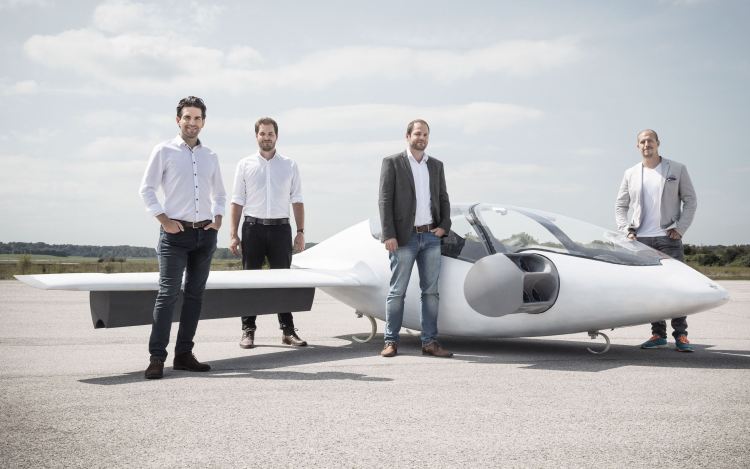German aviation startup Lilium has closed a $90 million series B round of funding from a handful of notable investors, including Chinese technology giant Tencent, existing investor Atomico (the VC firm created by Skype cofounder Niklas Zennström), Obvious Ventures (the VC firm founded by Twitter cofounder and former CEO Ev Williams), and global banking and asset management group LGT.
Founded out of Munich in 2014, Lilium — known as Lilium Aviation until a name change a few months back — is setting out to create a world “in which everyone can fly anywhere, anytime” by building compact all-electric jets that take off and land vertically. This would effectively bypass expensive, space-consuming runways and would position the company to fulfill its mission of bringing Uber-style air taxis to market within a decade.
Indeed, Lilium carried out is first test flight back in April, sending a prototype two-seater jet to the skies above Germany. During its maiden journey, the company performed what it called its “most complicated manoeuvre” when it transitioned between hover mode and horizontal movement.
https://www.youtube.com/watch?v=ohig71bwRUE
June 5th: The AI Audit in NYC
Join us next week in NYC to engage with top executive leaders, delving into strategies for auditing AI models to ensure fairness, optimal performance, and ethical compliance across diverse organizations. Secure your attendance for this exclusive invite-only event.
The company revealed at the time that it was setting its sights on a bigger, five-seater aircraft — something that will be made much easier with another $90 million in the bank.
This latest round of funding comes less than a year after Lilium closed its Atomico-led $10.7 million series A round, and with its new cash injection the company confirmed it will now “accelerate” plans to bring “low-cost air travel to a mass audience” by transporting people up to 300 km in one hour “at a price comparable to ground transport,” according to a statement.
“This investment is a tremendously important step for Lilium, as it enables us to make the five-seat jet a reality,” noted Lilium cofounder and CEO Daniel Wiegand. “This is the next stage in our rapid evolution from an idea to the production of a commercially successful aircraft that will revolutionize the way we travel in and around the world’s cities.”
Lilium’s mission to make urban personal air transport a reality will no doubt face significant regulatory scrutiny in the coming years, but a number of aviation startups around the world are currently working toward similar goals, which makes Lilium’s path just that little bit easier.
Roads? Where we’re going, we don’t need roads
Flying cars and other forms of personal air transport is something of a trend at the moment. Massachusetts-based Terrafugia has been working on prototypes of “roadable” aircraft for more than a decade, while Google cofounder Larry Page is backing two aviation startups. Kitty Hawk debuted its ultralight personal aircraft earlier this year, and Page founded Zee back in 2010 to build a “small, all-electric plane that could take off and land vertically,” according to a Bloomberg report.
Elsewhere, Slovakia-based AeroMobil recently raised fresh funds to bring its flying cars to Asia, and Washington-based Zunum Aero is striving to bring aviation into the future with small electric aircraft that use thousands of quieter regional airports.
Airbus also confirmed plans to test a self-piloted flying car by the end of 2017.
In addition to ramping up its development efforts for the five-seater jet, Lilium revealed that it plans to double down on recruitment efforts and expand its current team of 70. Just last month, the company announced some senior hires from Airbus, Tesla, and Gett — a trio of companies that pretty much embody Lilium’s plans for an all-electric aircraft, one built for the Uber generation.
“We are continuing to recruit the very brightest and best global talent in aeronautical engineering, physics, electric propulsion, and computer science to join us on this extraordinary aviation journey, where the only limits are the laws of physics,” added Wiegand.

